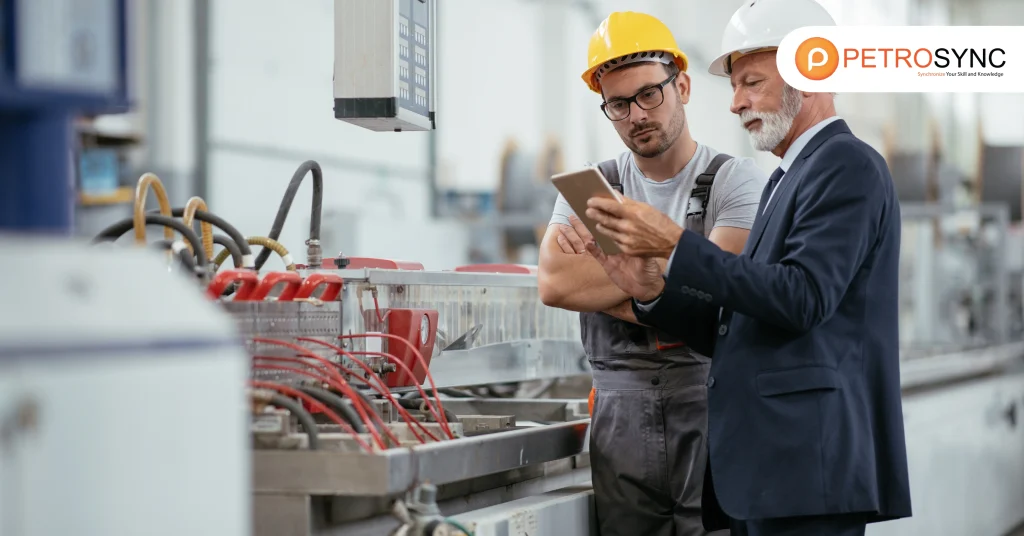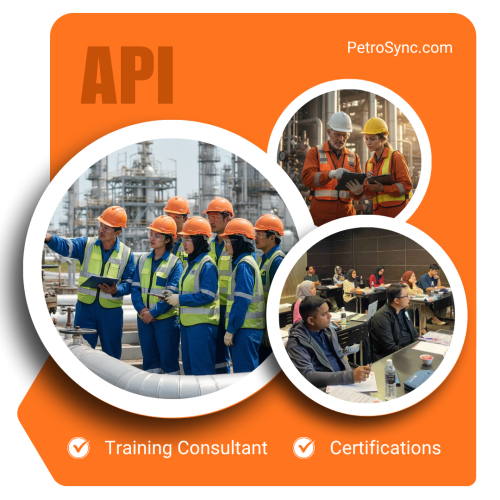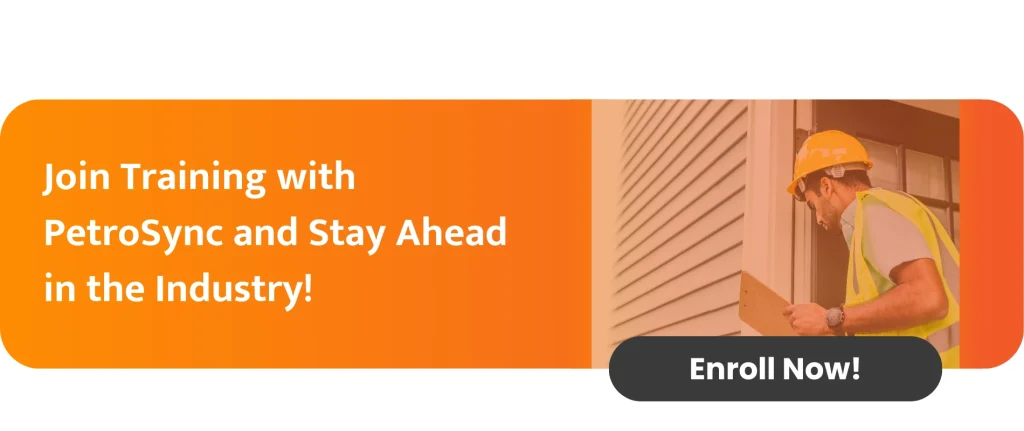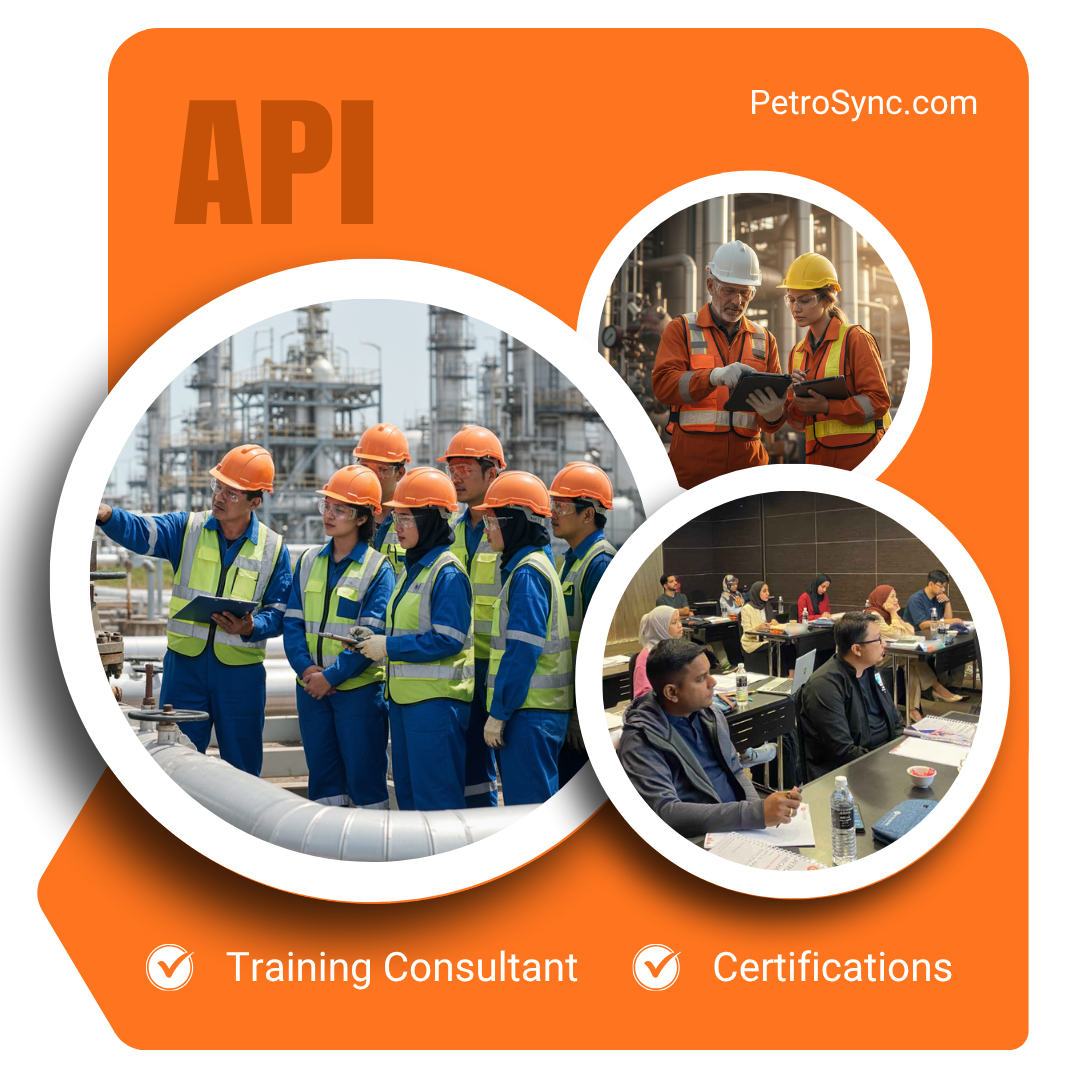In industries like oil and gas, ensuring the safety and dependability of pressure vessel and equipment is crucial. The API 510 Inspector plays a critical role in maintaining this integrity. These specialists examine, maintain, and certify that pressure vessel meet safety and performance standards.
In the article about API 510 inspector, it can serve as motivation for participants towards a promising future career and also become a significant advantage.
Table of Contents
ToggleWhat Is API 510 Inspector?
 API 510 Inspector is a trained expert who inspects pressure vessel in fields such as oil and gas, petrochemicals, and energy. The API 510 standard, set by the American Petroleum Institute (API), outlines the requirements for the inspection, repair, alteration, and rerating of pressure vessel.
API 510 Inspector is a trained expert who inspects pressure vessel in fields such as oil and gas, petrochemicals, and energy. The API 510 standard, set by the American Petroleum Institute (API), outlines the requirements for the inspection, repair, alteration, and rerating of pressure vessel.
These inspectors ensure compliance with regulations, perform thorough inspections, and make recommendations for repairs or replacements as needed.
How To Become an API 510 Inspector?
Being an API 510 Inspector necessitates a mix of education, experience, and certification. Achieving this certification not only verifies your technical expertise, but it also opens the door to a wide range of job options in businesses that rely significantly on the safe operation of pressure vessel. Below is a thorough overview of the steps involved:
Education
While there are no specific educational requirements, having a background in mechanical engineering, metallurgy, or a similar discipline is extremely advantageous. This course establishes a solid basis for understanding pressure vessel design, materials, and performance.
Courses in material physics, fluid dynamics, and thermodynamics, among others, will help you better grasp how pressure vessel behave under different operational situations. Inspectors with a strong educational background are better able to recognize potential concerns and make informed repair and maintenance decisions.
Experience
Practical experience is required to become an API 510 Inspector. Candidates must have appropriate experience working with pressure vessel, either through hands-on maintenance, design, or inspection positions. This experience helps you gain a thorough grasp of the equipment, its failure modes, and proper inspection practices.
The amount of experience required varies with the individual’s degree of education, although it often spans from one to five years. Individuals having a bachelor’s degree in engineering, for example, may be expected to have less field experience than those who have not received formal schooling. However, all candidates must demonstrate their ability to work in high-risk environments where safety is paramount.
Exam
The API 510 certification exam is a comprehensive test that covers all areas of pressure vessel inspections, including rules, standards, and safety regulations. Preparation is important because the exam examines the candidate’s ability to apply theoretical knowledge to real-world inspection circumstances.
Study materials include API 510 standards, ASME Boiler and Pressure Vessel Code sections, and safety protocols. Many professionals invest time in preparatory courses, practice exams, and study groups to ensure they have a thorough grasp of the material.
The exam is structured to evaluate both the candidate’s understanding of pressure vessel technology and their ability to ensure compliance with safety regulations, making it a critical milestone in the certification process.
Recertification
Once certified, API 510 Inspectors must recertify every three years. This entails filling out a recertification application and, in some situations, retaking the exam to ensure the inspector is current with industry standards. Inspectors must also demonstrate continuing involvement in pressure vessel inspection in order to be eligible for recertification.
This ensures that certified inspectors are always up to date on the most recent technological innovations and regulatory developments in their industry. Recertification is more than simply a formality; it signifies a long-term commitment to maintaining the industry’s highest levels of safety and professionalism.
How Hard Is API 510 Exam?
The API 510 exam is notorious for its difficulty due to the substantial technical knowledge required. Candidates should have a thorough understanding of inspection regulations, safety processes, standards, and pressure vessel design. The amount of difficulty varies depending on the individual.
As the certification requires a thorough understanding of pressure vessel inspection and adherence to industry standards. Success on the exam is closely related to how well applicants prepare, their hands-on experience, and familiarity with the necessary rules and standards. Candidates can pass the exam with proper preparation, including study materials, practice exams, and field experience.
What Is API 510 Inspector Benefits?
Becoming an API 510 Inspector has several professional and personal benefits. Some of the main benefits include:
- High Demand: Industries like oil and gas, chemical processing, and energy constantly need qualified inspectors, ensuring job security.
- Attractive Salary: As mentioned earlier, the compensation for API 510 Inspectors is competitive, with opportunities for growth.
- Job Advancement: Inspectors can specialize in various API certifications, expanding their skill set and job options.
- Industry Impact: API 510 Inspectors perform a critical role in ensuring the safety and integrity of pressure vessels, which are essential for industrial processes. They aid in the prevention of equipment failures, staff safety, and operational efficiency by assuring compliance with safety standards and identifying potential dangers. Their experience immediately contributes to reducing downtime, lowering repair costs, and improving overall reliability of industrial systems.
Boost Your Career with PetroSync: Become a Certified API 510 Inspector
PetroSync’s thorough API 510 Inspector certification program can help you advance in your career. As industries such as oil and gas continue to prioritize safety and compliance, the need for qualified inspectors has reached an all-time high. Our curriculum equips you with the essential skills, knowledge, and hands-on experience needed to pass the tough API 510 exam and prosper in this key field.
With competitive pay and opportunities for growth, now is a great time to boost your professional qualifications. Join PetroSync and identify yourself as an industry expert, ready to ensure the safety and efficiency of pressure vessels

Results-oriented and thorough SEO specialist with extensive experience in conducting keyword research, developing and implementing digital website promotion strategies and plans, managing campaigns to develop company websites in the digital world, excellent knowledge of marketing techniques and principles, and attentive strong attention to detail.









